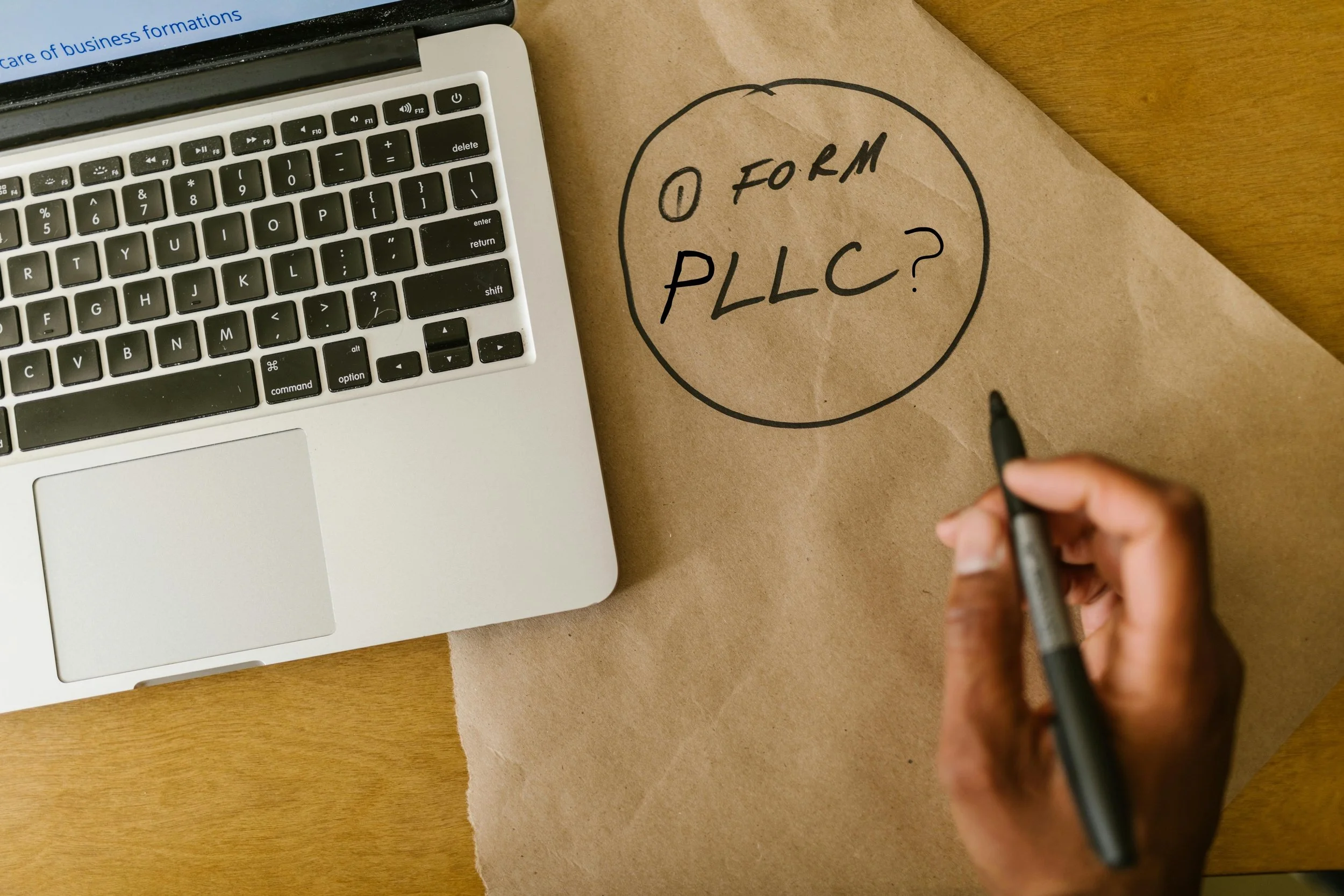Professional Limited Liability Companies: Obtaining the Certificate of Authority from the NYS Education Department
If you're considering starting your own professional practice and registering a professional limited liability company ("PLLC"), the first order of business is ensuring that you obtain the necessary approvals from the New York State Education Department. If you secured your professional license from the NYS Education Department, then you've already interacted with this government agency and understand that you may have to jump through a few hoops before you can get the result you're looking for. As a licensed professional, before you're even permitted to file your PLLC with the NY Department of State, you must first obtain a Certificate of Authority from the NYS Education Department.
WHICH PROFESSIONS ARE REGULATED BY THE NYS EDUCATION DEPARTMENT?
If you are professionally licensed by the NYS Education Department, then you most certainly are required to obtain their approval before you can file your PLLC. Here is a current list of the professions that are under the purview of the Education Department:
Acupuncture
Applied Behavior Analysis
Architecture
Athletic Training
Audiology
Certified Shorthand Reporting
Chiropractic
Clinical Laboratory Technology
Dentistry
Dietetics-Nutrition
Engineering
Geology
Interior Design
Land Surveying
Landscape Architecture
Massage Therapy
Medical Physics
Medicine (Physicians, Physician Assistants, Specialist Assistants)
Mental Health Practitioners
Midwifery
Nursing
Occupational Therapy
Ophthalmic Dispensing
Optometry
Pathologists' Assistant
Perfusion
Pharmacy
Physical Therapy
Podiatry
Polysomnographic Technology
Psychology
Public Accountancy
Respiratory Therapy
Social Work
Speech-Language Pathology
Veterinary Medicine
For a more detailed breakdown of each profession, including the relevant licensure requirements, applicable laws & regulations, practice guidelines and more, you can visit the NYS Education Department website.
HOW DO I OBTAIN A CERTIFICATE OF AUTHORITY FROM THE NYS EDUCATION DEPARTMENT?
Once you've determined that your profession requires approvals from the Education Department, the next step is to assemble a Certificate of Authority Request. Although the request itself is not particularly complicated, paying close attention to detail is extremely important as any minor mistake or omission can result in a rejection or denial of your request. Most importantly, before submitting the request, you will want to review the NYS Education Department's Filing Tips Page to ensure that it is in compliance with the Department's standards and expectations for filings.
A complete Certificate of Authority request packet will include the following:
Cover Letter (Include the professional license number of every member)
Draft of PLLC Articles of Organization
Filing Fee: $10 per PLLC Member via check made payable to "New York State Education Department"
After you have put the packet together, you must mail it to the following address:
New York State Education Department
Division of Professional Licensing Services
Professional Corporations Unit
89 Washington Avenue
Albany, NY 12234-1000
According to the NYS Education Department website, the Certificate of Authority request process can take anywhere from eight to ten weeks before you can expect to receive an approval. If you have any questions about PLLCs or the Certificate of Authority process, please do not hesitate to give us a call at (212) 547-8857 or schedule a consultation online and we'd be happy to discuss these issues further and help you reach a resolution. Our experienced business attorneys are here to provide the advice you need.
Disclaimer: This blog post and similar posts are not to be considered as providing legal advice. The discussion here is meant for educational and informational purposes only and shall not create an attorney-client relationship with the readers of this content.
tags
- 90 Day Rule 1
- Addendum 1
- Adjustment of Status 15
- Advance Parole 1
- Affidavit of Support 1
- Americans with Disabilities Act 1
- Attorney-Client Privilege 1
- Attorney-Client Relationship 1
- Background Checks 1
- Bargaining Power 1
- Bars to Adjustment of Status 1
- Board of Directors 1
- Bona Fide Marital Relationship 3
- By-laws 1
- CIMT 1
- Certificate of Authority 1
- Certificate of Citizenship 1
- Child Citizenship Act of 2000 1
- Commercial Leases 1
- Conditional Green Card 6
- Confidentiality 1
- Consular Processing 3
- Consulting Agreements 1
- Continuous Residency 1
- Contract Clauses 9
- Contract Negotiation 6
- Contracts 12
- Coronavirus 4
- Corporations 6
- Correcting Errors 1
- Crime Involving Moral Turpitude 1
- Crime Victims 6
- DACA 1
- Dissolving LLCs 1
- ESTA 1
- Employees 3
- Employers 3
- Expanded Family/Medical Leave 1
- FOIA Requests 1
- False Claim to U.S. Citizenship 1
- Fiancé Visa Interview 1
- Fiancé Visas 10
- Force Majeure 2
- Foreign PLLCs 2
- Freedom of Information Act 1
- Good Moral Character 7
- Green Card Interview 2
- Greencard 17
- I-129F 1
- I-130 Application 3





